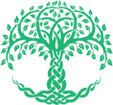Quick Search
Developing an Evaluation Tool for the Urban Family Medicine Program of the Iranian Health System
Raana Gholamzadeh Nikjoo1, Sadeq Fattah Ahari21Department of Health Policy and Management, School of Management and Medical Informatics, Tabriz University of Medical Sciences, Tabriz, Iran2Ahhar Health Network, Tabriz University of Medical Sciences, Ahar, Iran
INTRODUCTION: This research aimed to develop an evaluation tool for the urban family medicine program of the Iranian health system.
METHODS: This was a mixed-methods study. Following the literature review, a qualitative study was conducted through interviews with experts, executives, and presenters. Subsequently, the indicators derived from the literature review and qualitative study were merged, and the Delphi questionnaire (initial tool) was designed. The tool items were sent to 30 experts based on two criteria: Importance and executability. The evaluation tool was validated after two rounds of Delphi. In addition, index weights were calculated for the selected indicators, and index profiles were compiled.
RESULTS: A total of 103 indicators were obtained from the literature review (23 structural, 57 process, and 23 output indicators). From the interview sessions, 17 indicators were derived (11 outcome indicators, 5 process indicators, and 1 structural index). The initial tool was created by merging the listed indicators from the literature review and qualitative sessions, followed by two rounds of Delphi with eight dimensions (service delivery, human resources, maternity and drug facilities, information systems, financial resources, community participation, and partnership) and 70 final indicators.
DISCUSSION AND CONCLUSION: A precise and comprehensive evaluation of the family medicine program, based on the Donabedian models three domains of structure, process, and outcomes, enabled the identification of strengths, problems, and systemic challenges. This paves the way for improving the service quality and customer satisfaction.
Manuscript Language: English




















